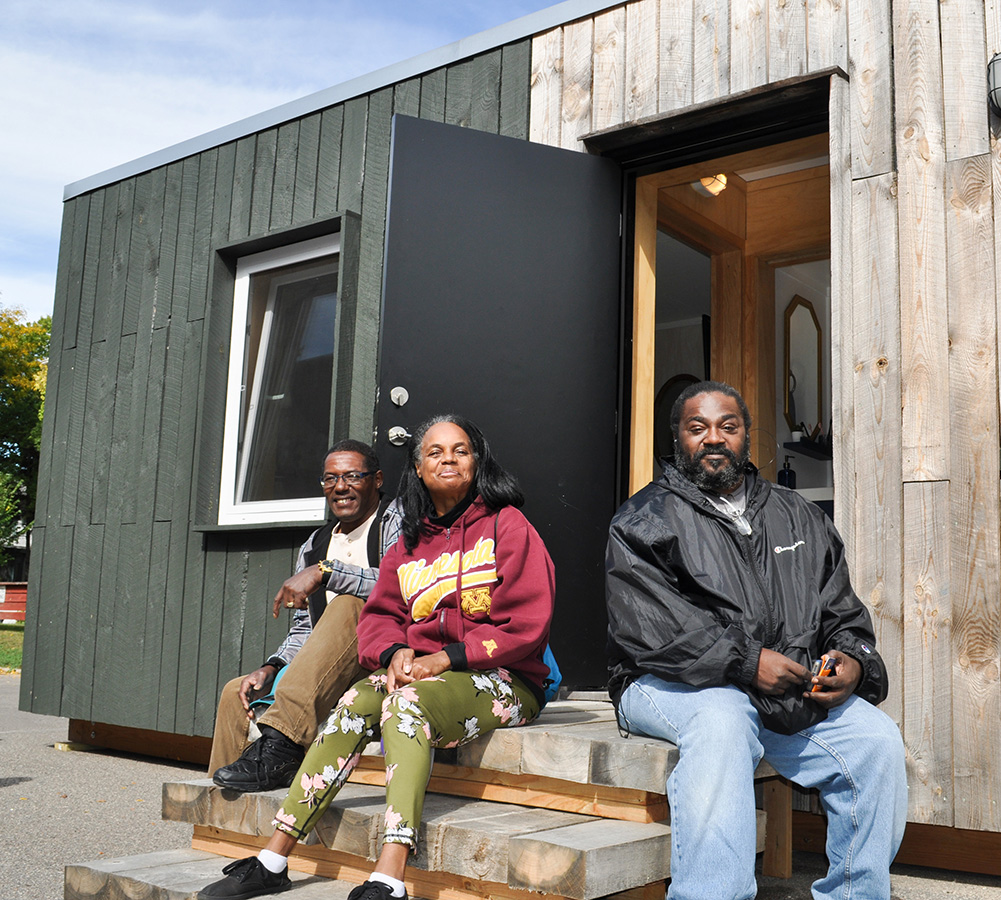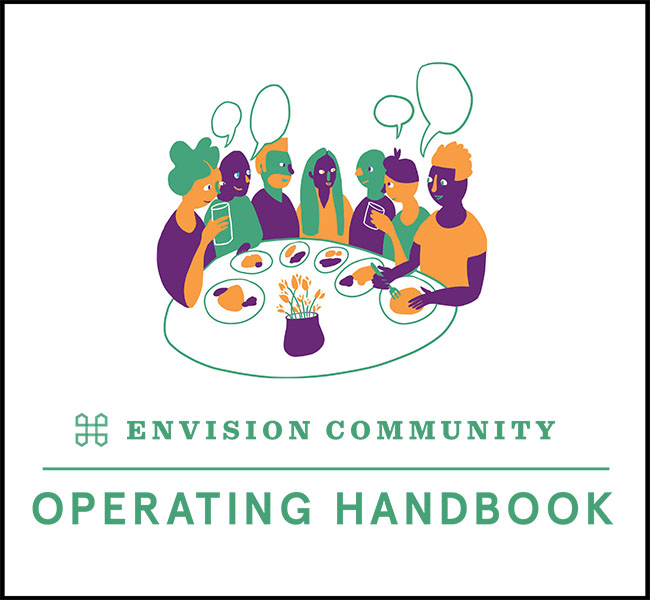Intentional Community
Envision a place where the conditions for social connectedness are considered as integral to healing as the structures that offer solitude, safety and privacy.
“Relationships are more important than roofs.”
–Dewayne Parker, Envision Community Leader

Our Shared Purpose

Our Shared Values
Our values represent the character of Envision. They are seen and felt at Envision every day.
Autonomy
We honor each other’s autonomy through transparency, flexibility, and choice.
Trust
We must earn trust from each other rather than expecting it to be readily given.
Letting Go
We seek to release what is no longer needed to make room for health, purpose, and community.
Open to Learning
We respect each person as a teacher from whom we want to learn.
Shared Responsibility
We share responsibility for cultivating this community.
Social Change
We see ourselves as part of a broader movement towards health and housing equity.
How did we create these shared values?
Envision’s are built upon the beauty, strength, and resiliency of the community of people who experience homelessness. Over 100 people experiencing homelessness helped create Envision’s shared values. Click on this link to read more about the research that uncovered these shared values.
Operating Envision
Envision’s operating handbook is an overview, manual, and manifesto for our new type of community named “Envision.” This handbook is the output of shared meals and working sessions with a diverse team of potential residents and housing experts. Since it is a living document, we look forward to ongoing contributions and improvements. We encourage you to read our operating handbook in detail to learn about how Envision will run:
Governance Structure
Too often in traditional supportive housing, we see decisions come from the nonprofit or agency running the program. This “top down,” status quo approach creates an inequitable “provider” and “client” dynamic. Envision Community does not have clients, nor a top or a bottom—each member of the community is empowered to participate in self-governance and come to decisions on equal footing.
Engaging the Broader Community
Envision’s intentional community does not just happen within its walls. Broad community engagement is also an important part of intentional community. To become a valued asset of the broader neighborhood and surrounding community, residents of Envision will look for opportunities to expand participation in and familiarity with Envision. This may include inviting neighbors to Envision events and community meals, participating in a neighborhood watch association, and establishing relationships with the local police. The neighborhood and surrounding community will be safer and more beautiful because of Envision Community.


